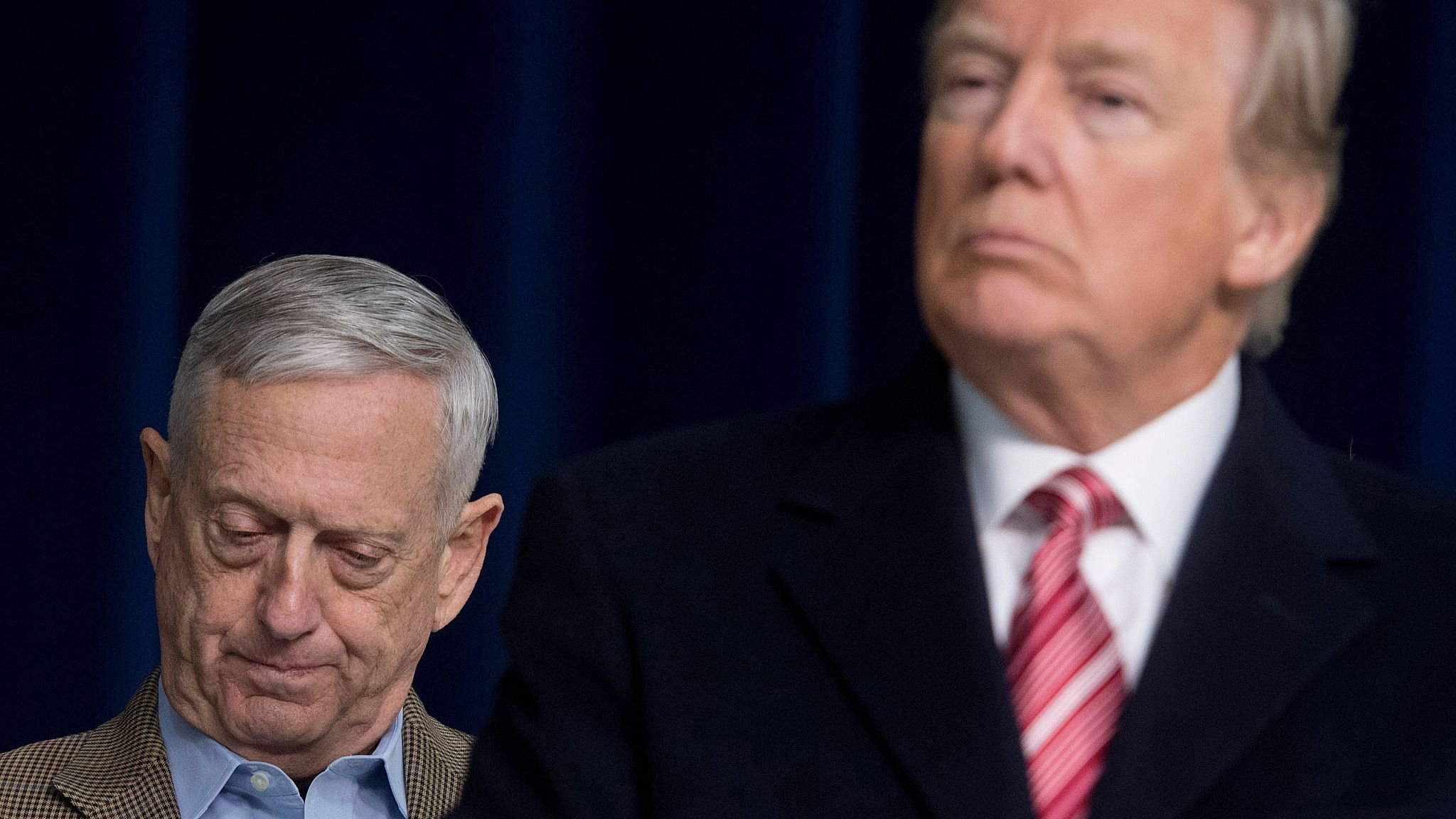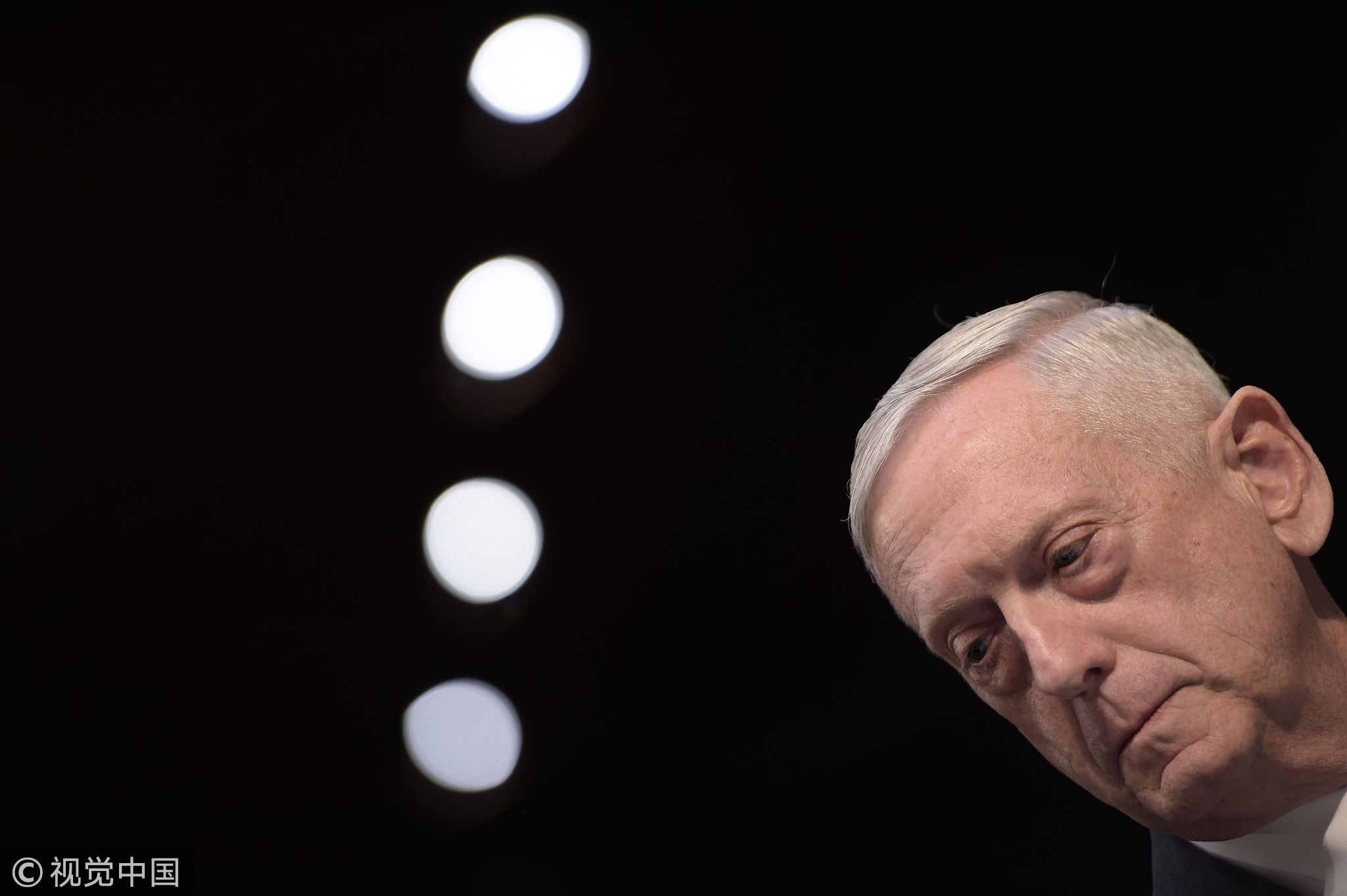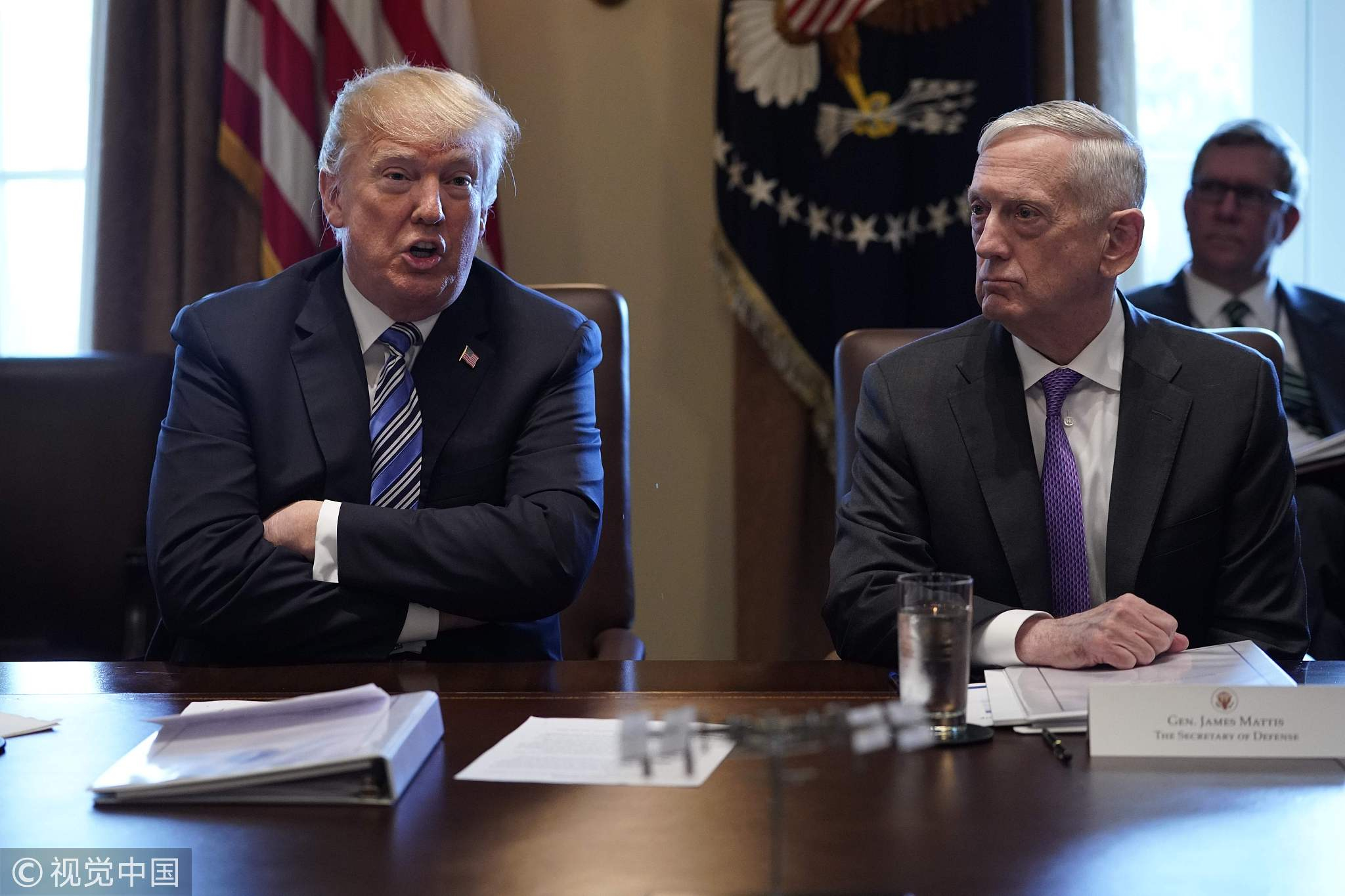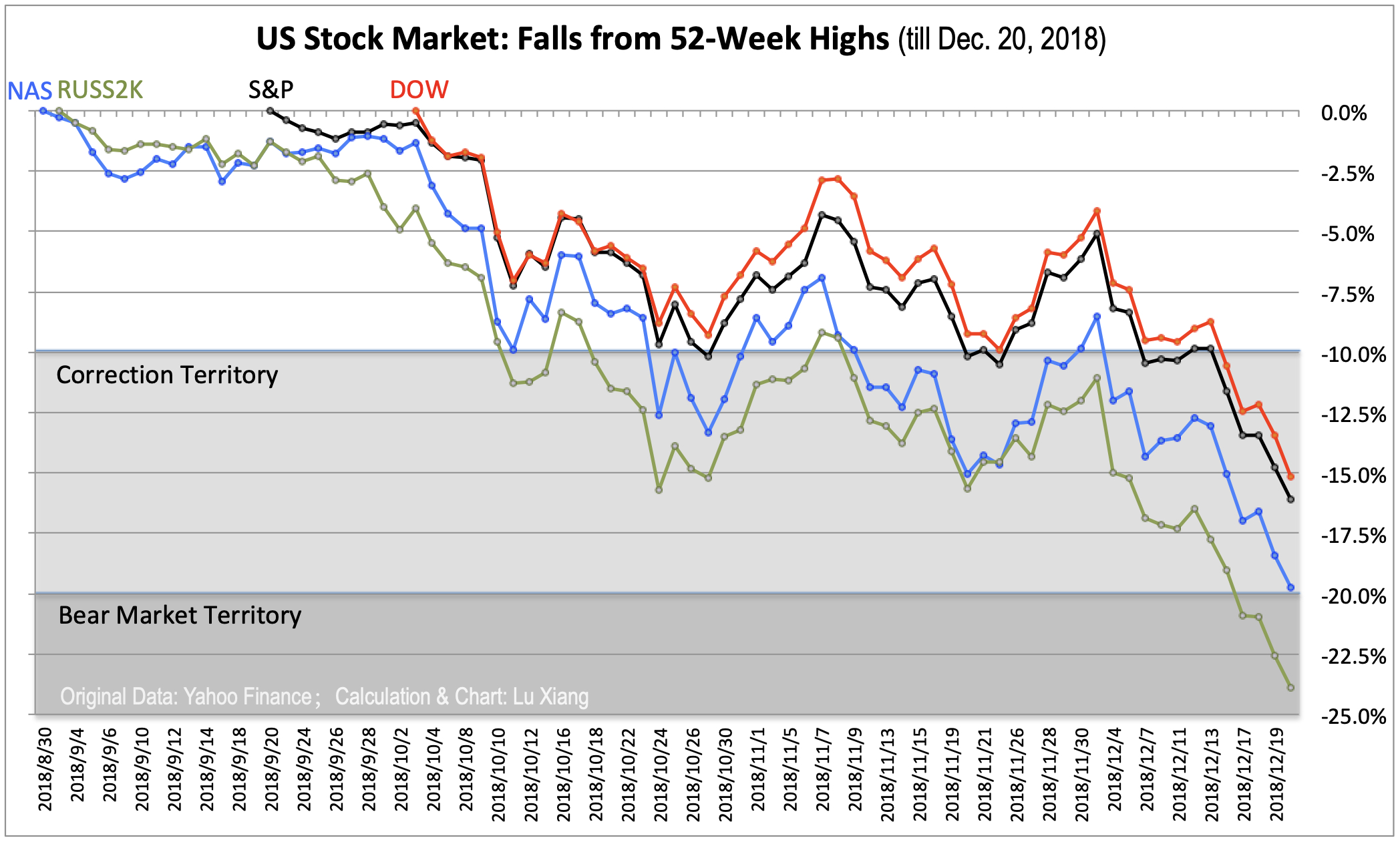
Opinions
18:17, 21-Dec-2018
Opinion: U.S. political, economic turmoil forebodes rough new year
Updated
17:39, 24-Dec-2018
Lyu Xiang

Editor's note: Lyu Xiang works at the Chinese Academy of Social Sciences. The article reflects the author's opinion, and not necessarily the views of CGTN.
The abrupt announcement of U.S. Secretary of Defense James Mattis' resignation is not at all surprising since he has been sidelined by President Trump for a very long time.
It's widely reported that, as the de jure chief of the largest military department in the world, General Mattis has been excluded from major decision-making processes relating to U.S. military affairs, including the decision of "full" and "rapid" withdrawal of U.S. troops from Syria.
Earlier this year, it was reported that General Mattis was even not part of the decision to create a new unit, the Space Force, within the Pentagon.
The last “adult” in Trump administration
The resignation of Secretary Mattis is just a predictable result of President Trump's unpredictable style of governing.

U.S. Defense Secretary James Mattis testifies on the DOD posture and fiscal year 2019 budget request to the Senate Armed Services Committee on Capitol Hill in Washington, April 26, 2018. /VCG Photo
U.S. Defense Secretary James Mattis testifies on the DOD posture and fiscal year 2019 budget request to the Senate Armed Services Committee on Capitol Hill in Washington, April 26, 2018. /VCG Photo
Along with former Secretary of State Rex Tillerson, former White House security adviser H.R. McMaster and the outgoing White House Chief of Staff John Kelly, General Mattis is said to be one of the few “adults” in the Trump administration, meaning that these “professionals” could somehow help the President be less capricious in decision-making.
Tillerson and McMaster were forced to quit and General Kelly announced earlier this month he will leave by the end of this year. Now, General Mattis becomes the sole “adult” remaining in a highly limited capacity till February.
In the words of the U.S. Senator Mark Warner (D-VA), the top Democrat on the Senate Intelligence Committee, "This is scary. Secretary Mattis has been an island of stability amidst the chaos of the Trump administration."
In this way, we could understand General Mattis' resignation as representing a fatal failure of the Trump administration and pointing to a much more undisciplined and chaotic U.S. government.
In the coming month, President Trump will face a Democrat-controlled severely hostile U.S. House of Representatives, and more revelations of investigations into his former aides, his family members and himself.

U.S. President Donald Trump, with Defense Secretary James Mattis, speaks during a Cabinet meeting in the Cabinet Room of the White House in Washington, March 08, 2018. /VCG Photo
U.S. President Donald Trump, with Defense Secretary James Mattis, speaks during a Cabinet meeting in the Cabinet Room of the White House in Washington, March 08, 2018. /VCG Photo
The exodus of “adults” from his administration will definitely imperil his political power.
U.S. economy is more worrying
While political instability of the Trump administration is stunning, the more worrying turmoil is fermenting in the U.S. economy.
Large-scale tax cuts for U.S. corporations and individuals seem to have encouraged people's confidence in the U.S. economy, and the economic growth rates for the previous three quarters were not bad.
At the beginning of October, however, the U.S. economy, reflected in the stock market, suddenly lost its momentum.
Major U.S. stock market indexes culminated from August 30 to October 3, and then stock prices of all major U.S. corporations have been continuously diving.
By the last trading day (December 20), the Russell 2000 (RUS2K), representing the small-cap businesses, lost 23.9 percent from its 52-week high and officially sunk into the bear market territory, and the Nasdaq 500 (NAS), representing technology-intensive businesses, fell 19.8 percent and was just inching above the bear market.
Meanwhile, Dow Jones Industrial Average (DOW) and S&P 500 (S&P) all fell over 15 percent and sat deep in the correction territory. (See the chart below.)

While DOW and S&P have not sunk to the bear market, half of the DOW and three-fifths of the S&P component companies are already in.
Among the many reasons for the turmoil of the U.S. economy, we see the U.S. government's ongoing trade war with China, a fast-rising fiscal deficit and national debts and Trump Administration's failure of implementation of large-scale energy industry development and infrastructure spendings.
Dual turmoil in American politics and the economy is exactly pointing to an extremely rough year for the U.S. government, and the rest of the world will keenly look at whether President Trump's “children-only” government is able to make a turnaround or just experiences a total meltdown.
(If you want to contribute and have specific expertise, please contact us at opinions@cgtn.com.)

SITEMAP
Copyright © 2018 CGTN. Beijing ICP prepared NO.16065310-3
Copyright © 2018 CGTN. Beijing ICP prepared NO.16065310-3